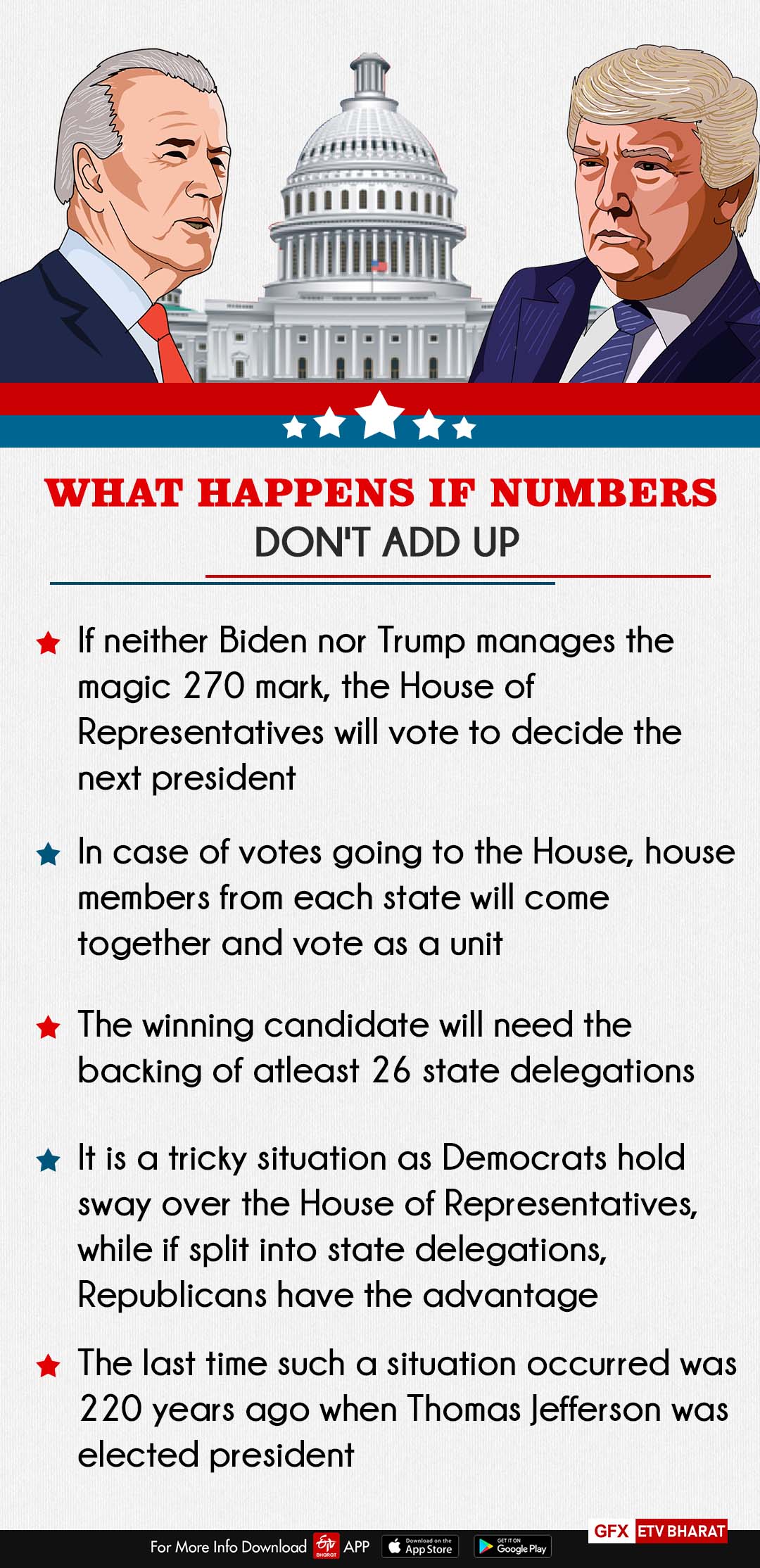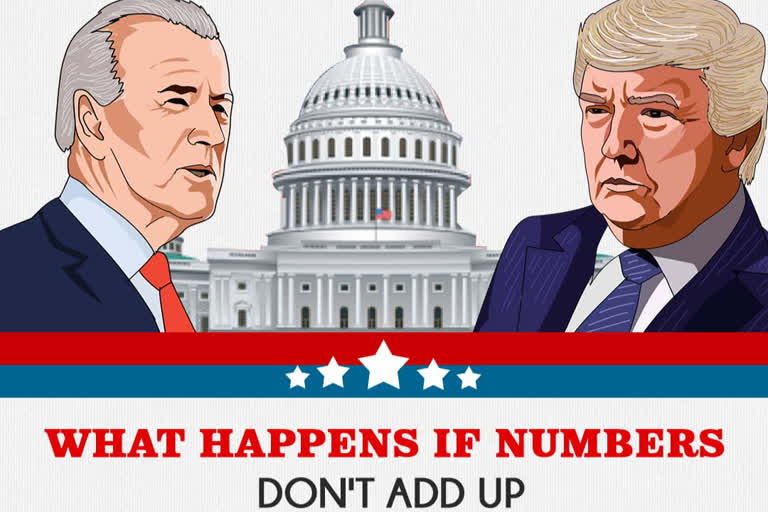Hyderabad: As the counting of votes in the US Presidential elections drags on with results for key states yet to be declared, a very important question comes to the fore. What happens if neither Trump nor Biden manage to get to the all-important 270 electoral votes?
The neck to neck race has made some people think of a plausible scenario. What if the race between Joe Biden and Donald Trump ends in a tie and can a tie be possible in the first place?
The answer is yes!
It may be highly unlikely. Yet, if Trump and Biden both tie with 269 electoral college votes each and if neither manages the magic 270 mark — the House of Representatives will decide the next President of the United States. The vice-president, in turn, will be decided by the Senate.

As the President is not necessarily chosen on Election day, members of the Electoral college will meet on December 14 to officially elect the next president of the United States.
If in case the vote goes to the house, the states will ultimately vote as units which means that House members from each state will come together and vote with each delegation getting one vote.
In this scenario, for either Biden or Trump to win, each candidate will need to be backed by at least 26 state delegations.
In hindsight, Democrats hold sway over the House of Representatives with a majority. But when split into state delegations, Republicans have control.
Technically if the race for the President goes to the house, it could augur well for Trump.
When it comes to choosing the vice president, in case Republicans have the majority in the Senate after the elections, Trump's second in command Mike Pence is likely to be re-elected as Vice President.
The newly-elected Congress members would be the people that hold the key and will be voting for both the next President and the Vice president of the United States.
The last time such a scenario occurred was in 1800 when Thomas Jefferson beat John Adams by 73 electoral votes to 65. Back then, in a strange turn of events, the presidential electors failed to differentiate between the office of the President and the Vice president.
This led to both Jefferson and his running mate Aaron Burr both getting 73 votes which finally led to the sitting Congress deciding the President.
Jefferson became the president in 1801. In 1804 the 12th Amendment to the Constitution was ratified which ensured that electors were had to write down in the ballots the person they voted for as President and also the person they voted for as Vice president.
Read: US Election LIVE: Trump backers converge on vote centers



